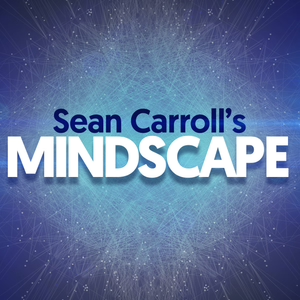
Episode 2: Garmonbozia
Explicit content warning
02/01/18 • 86 min
1 Listener
Phil and JF use a word from the Twin Peaks mythos, "garmonbozia," to try to understand what it was that the detonation of atomic bomb brought into the world. We use the fictional world of Twin Peaks as a map to the (so-called) real world and take Philip K. Dick, Krzysztof Penderecki, Norman Mailer, William S. Burroughs, Theodor Adorno, and H.P. Lovecraft as our landmarks.
Warning: some spoilers of Twin Peaks season 3.
Works Cited or Discussed:
Phil Ford, "The Cold War Never Ended", Dial M for Musicology (1) (2) (3) (4)
Twin Peaks: The Return — Official Site
Philip K. Dick, “The Empire Never Ended,” treated in R. Crumb’s “The Religious Experience of Philip K. Dick” and the “Tractate” from Dick’s Exegesis: http://www.tekgnostics.com/PDK.HTM
Norman Mailer, “The White Negro”
Ray Brassier, Nihil Unbound: Enlightenment and Extinction
J.R.R. Tolkien, The Silmarillion
Arthur Machen, The White People
Robert Oppenheimer, “I am become death”
C.G. Jung, Synchronicity: An Acausal Connecting Principle
William S. Burroughs, Naked Lunch
Howard Phillips Lovecraft, The Call of Cthulhu
William B. Yeats, "The Second Coming"
Krzysztof Penderecki, Threnody to the Victims of Hiroshima
Jon H. Else, The Day After Trinity (documentary)
Francisco Goya, "The Sleep of Reason Produces Monsters"
Stanley Kubrick, Doctor Strangelove, or, How I Learned to Stop Worrying and Love the Bomb
Theodor Adorno and Max Horkheimer, Dialectic of Enlightenment
Jean Beaudrillard, Simulacra and Simulation
Guy Debord, The Society of the Spectacle
William James, A Pluralistic Universe
Norman Mailer, Advertisements for Myself
Learn more about your ad choices. Visit podcastchoices.com/adchoices
Phil and JF use a word from the Twin Peaks mythos, "garmonbozia," to try to understand what it was that the detonation of atomic bomb brought into the world. We use the fictional world of Twin Peaks as a map to the (so-called) real world and take Philip K. Dick, Krzysztof Penderecki, Norman Mailer, William S. Burroughs, Theodor Adorno, and H.P. Lovecraft as our landmarks.
Warning: some spoilers of Twin Peaks season 3.
Works Cited or Discussed:
Phil Ford, "The Cold War Never Ended", Dial M for Musicology (1) (2) (3) (4)
Twin Peaks: The Return — Official Site
Philip K. Dick, “The Empire Never Ended,” treated in R. Crumb’s “The Religious Experience of Philip K. Dick” and the “Tractate” from Dick’s Exegesis: http://www.tekgnostics.com/PDK.HTM
Norman Mailer, “The White Negro”
Ray Brassier, Nihil Unbound: Enlightenment and Extinction
J.R.R. Tolkien, The Silmarillion
Arthur Machen, The White People
Robert Oppenheimer, “I am become death”
C.G. Jung, Synchronicity: An Acausal Connecting Principle
William S. Burroughs, Naked Lunch
Howard Phillips Lovecraft, The Call of Cthulhu
William B. Yeats, "The Second Coming"
Krzysztof Penderecki, Threnody to the Victims of Hiroshima
Jon H. Else, The Day After Trinity (documentary)
Francisco Goya, "The Sleep of Reason Produces Monsters"
Stanley Kubrick, Doctor Strangelove, or, How I Learned to Stop Worrying and Love the Bomb
Theodor Adorno and Max Horkheimer, Dialectic of Enlightenment
Jean Beaudrillard, Simulacra and Simulation
Guy Debord, The Society of the Spectacle
William James, A Pluralistic Universe
Norman Mailer, Advertisements for Myself
Learn more about your ad choices. Visit podcastchoices.com/adchoices
Previous Episode

Episode 1: Introduction to Weird Studies
Phil and J.F. share stories of sleep paralysis and talk about Charles Fort's sympathy for the damned, Jeff Kripal's phenomenological approach to Fortean weirdness, Dave Hickey's notion of beauty as democracy, and Timothy Morton's hyperobjects.
Learn more about your ad choices. Visit podcastchoices.com/adchoices
Next Episode

Weird Stories: Arthur Machen's "The White People"
Weird Stories is a series of readings for Weird Studies listeners who want to dig deeper into the themes and ideas discussed on the Weird Studies podcast.
In his seminal essay "Supernatural Horror in Literature," H. P. Lovecraft named Arthur Machen one of the four "modern masters" of horror fiction, alongside Lord Dunsany, Algernon Blackwood, and M. R. James. Born in 1863, Machen burst onto the London literary scene in 1890 with the controversial novella "The Great God Pan." He was briefly considered one of the luminaries of the Decadent movement before falling into obscurity and experiencing a literary rebirth toward the end of his life.
In this Weird Stories installment, Phil Ford reads the complete text of one of Machen's most famous works, "The White People" (1904).
Learn more about your ad choices. Visit podcastchoices.com/adchoices
If you like this episode you’ll love
Episode Comments
Generate a badge
Get a badge for your website that links back to this episode
<a href="https://goodpods.com/podcasts/weird-studies-79614/episode-2-garmonbozia-4250369"> <img src="https://storage.googleapis.com/goodpods-images-bucket/badges/generic-badge-1.svg" alt="listen to episode 2: garmonbozia on goodpods" style="width: 225px" /> </a>
Copy




